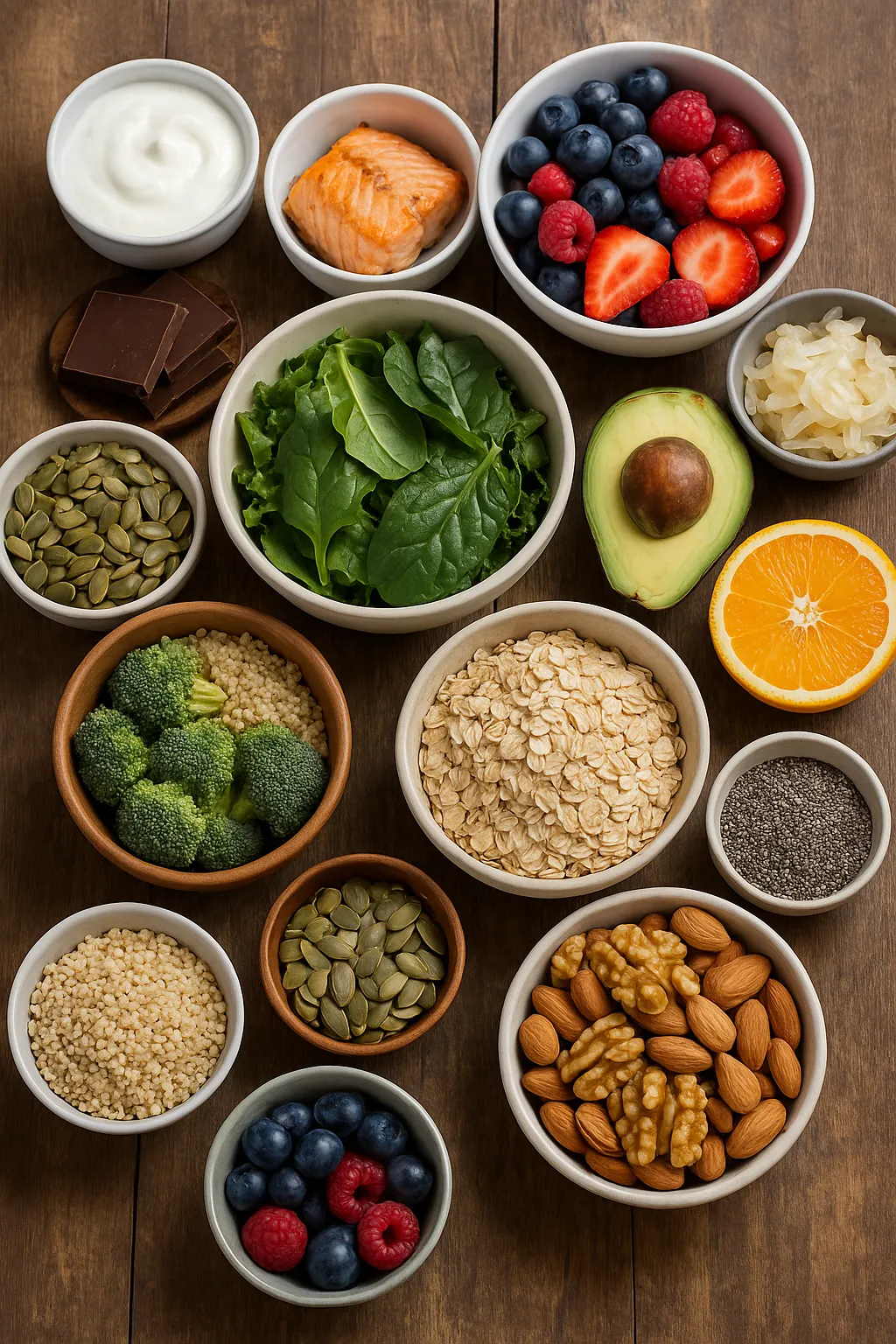We often hear the phrase “you are what you eat,” but few realize how directly nutrition impacts mental health. Just like the body, the brain needs fuel — and the quality of that fuel determines how well it functions. Poor diets high in processed foods, sugar, and unhealthy fats can increase stress, anxiety, and depression, while nutrient-rich foods can stabilize mood, sharpen focus, and boost overall well-being. Understanding the link between food and mental health empowers you to make choices that support both your body and mind.
How Nutrition Affects the Brain
The brain requires a constant supply of energy to regulate emotions, cognition, and stress responses. Nutrients such as omega-3 fatty acids, vitamins, minerals, and amino acids play crucial roles in neurotransmitter production. For example, serotonin — often called the “feel-good hormone” — is influenced by tryptophan, an amino acid found in protein-rich foods. Similarly, B vitamins support the nervous system, while magnesium helps calm the body.
When the diet lacks essential nutrients, it can disrupt brain chemistry, leading to mood swings, fatigue, and even mental health disorders. On the other hand, a balanced diet promotes stable energy levels and emotional resilience.
The Role of Gut Health in Mental Well-Being
Recent research highlights the strong connection between the gut and the brain, often referred to as the gut-brain axis. The gut houses trillions of bacteria that influence digestion, immune function, and even mood. In fact, around 90% of serotonin is produced in the gut.
A healthy gut microbiome, supported by fiber-rich and fermented foods, enhances mental health by reducing inflammation and improving communication between the gut and brain. Conversely, poor gut health has been linked to higher rates of depression and anxiety.
Foods That Boost Your Mood
Not all foods are created equal when it comes to mental well-being. Some ingredients actively support brain health and mood regulation.
- Fatty Fish – Salmon, mackerel, and sardines are rich in omega-3 fatty acids, which reduce inflammation and support brain function. Omega-3s are linked to lower rates of depression and better memory.
- Whole Grains – Brown rice, oats, and quinoa provide slow-releasing energy, preventing mood crashes caused by blood sugar spikes. They also contain B vitamins that support the nervous system.
- Leafy Greens – Spinach, kale, and broccoli are packed with folate, magnesium, and antioxidants, all of which reduce stress and improve energy.
- Nuts and Seeds – Almonds, walnuts, chia seeds, and pumpkin seeds contain healthy fats, magnesium, and tryptophan, which help regulate serotonin production.
- Fermented Foods – Yogurt, kefir, kimchi, and sauerkraut introduce beneficial probiotics to the gut, supporting digestion and mental health.
- Berries – Blueberries, strawberries, and blackberries are rich in antioxidants that protect brain cells and reduce oxidative stress linked to anxiety and depression.
- Dark Chocolate – In moderation, dark chocolate boosts mood by releasing endorphins and increasing serotonin.
Foods That Negatively Impact Mental Health
Just as some foods boost your mood, others can harm it. Diets high in refined sugar, processed snacks, and fried foods often cause blood sugar spikes followed by energy crashes, contributing to irritability and fatigue. Excessive caffeine and alcohol can also disrupt sleep and increase anxiety. Reducing these foods while focusing on nutrient-dense alternatives creates a stronger foundation for mental well-being.
Building a Balanced Diet for Mental Health
Improving your diet doesn’t require extreme changes. Small, sustainable adjustments can have a significant impact.
Tips for creating a mood-boosting diet:
- Eat a variety of colorful fruits and vegetables daily.
- Include sources of lean protein, such as fish, beans, or chicken.
- Replace refined grains with whole grains.
- Stay hydrated, as dehydration affects concentration and mood.
- Plan meals in advance to avoid processed food cravings.
By making nutrition a priority, you not only support your physical health but also nurture your mind.
Final Thoughts
Food is more than fuel — it is medicine for the body and brain. By choosing nutrient-dense, mood-boosting foods and reducing processed, sugar-heavy options, you can create a diet that supports emotional balance and resilience. Small changes in eating habits can lead to big improvements in mental well-being, helping you feel more energized, focused, and positive each day.



